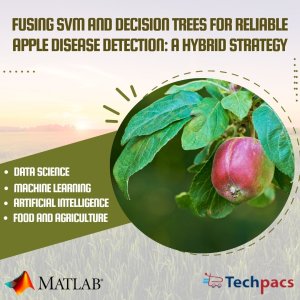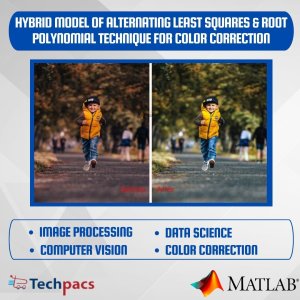Novel Data Protection: DNA Encryption and GBT-SVD in Double-Layer Security
Problem Definition
The existing literature on video steganography reveals several key limitations and challenges that need to be addressed. While video steganography is recognized for its high data hiding ability and less complex video processing, the use of frequency domain frame coefficients for hiding information in frames has shown limitations in providing double-layer security. Traditional techniques combining encrypted data and steganographic data, such as utilizing the DCT scheme on cover videos and Scrambling-AES Encryption algorithm on message images, have encountered problems. The AES technique, although commonly used, is not entirely secure and consumes significant storage and processing time for encryption and decryption. Additionally, the DES technique's tendency to break images into visible blocks at higher compression ratios poses a threat to the effectiveness of steganography in the Transform domain.
Therefore, there is a pressing need for a new approach that can address the shortcomings of spatial domain techniques and provide enhanced security and efficiency in video steganography.
Objective
The objective of the proposed work is to overcome the limitations of current video steganography techniques by implementing a new approach that combines advanced encryption and steganography methods for enhanced security. This novel approach integrates a logistic map-based image scrambling algorithm and a DNA encryption algorithm to provide double-layer security for watermark images. By utilizing a hybrid approach with GBT transform and Singular Value Decomposition technique, the proposed work aims to effectively hide watermark images within cover images, ultimately improving the overall security of data transmission and storage. The use of DNA encryption offers advantages such as parallelism and quick computation, leading to faster and more secure encryption processes. Overall, the objective is to advance data security in video steganography by addressing existing limitations and enhancing the efficiency and security of encryption and steganography processes.
Proposed Work
To address the limitations of existing techniques in video steganography, the proposed work aims to implement a novel approach that combines advanced encryption and steganography methods for enhanced security. By integrating a logistic map-based image scrambling algorithm for robust encryption and a DNA encryption algorithm for an extra layer of security, the new approach ensures double-layer security for the watermark image. Furthermore, the application of a hybrid approach utilizing the GBT transform and Singular Value Decomposition technique allows for effective hiding of the watermark image within the cover image. This integration of diverse encryption and steganography methods helps in improving the overall security of the data being transmitted or stored.
By leveraging the unique properties of the DNA encryption algorithm, such as immense parallelism and quick computation, the proposed technique offers a promising solution to the challenges faced by traditional models.
The use of DNA encryption not only enhances the speed and efficiency of the encryption process but also provides a more secure method for protecting sensitive information. Additionally, the hybrid model of GBT transform and SVD technique ensures the effective concealment of the watermark image within the cover image, further strengthening the security of the communication. Overall, the proposed work aims to advance the field of data security by offering a comprehensive solution that addresses the limitations of existing techniques and enhances the overall security of data encryption and steganography processes.
Application Area for Industry
This project's proposed solutions can be applied in a wide range of industrial sectors such as cybersecurity, defense, banking, healthcare, and legal services. In the cybersecurity sector, the use of enhanced encryption techniques like the DNA algorithm can strengthen data protection and prevent unauthorized access to sensitive information. In the defense sector, the double-layer security provided by the integration of encryption and steganography can help secure confidential communications and data transmissions. In the banking industry, implementing advanced encryption methods can safeguard financial transactions and customer data from cyber threats. Moreover, in healthcare, protected communication channels can ensure the privacy of patient records and medical information.
Legal services can also benefit from enhanced data security measures to protect sensitive legal documents and client information. Overall, the application of the proposed solutions in various industrial domains can address challenges related to data security, confidentiality, and integrity, providing a more robust defense against potential cyber threats and unauthorized access.
Application Area for Academics
The proposed project on video steganography using DNA encryption and a hybrid model of GBT transform and SVD techniques has the potential to enrich academic research, education, and training in several ways. Firstly, this project offers a novel approach to enhancing the security of data hiding in videos, which can serve as a valuable research contribution in the field of cybersecurity and data encryption.
In terms of education, this project can be used as a case study for students in computer science, information technology, and cybersecurity courses to learn about advanced encryption techniques and data hiding methods. It can also be incorporated into training programs for professionals in the field who are looking to upgrade their knowledge and skills in data security.
The relevance of this project lies in its innovative use of DNA encryption and hybrid techniques for video steganography, which opens up new avenues for exploring the possibilities of secure data communication.
The potential applications of this project extend to various research domains such as cryptography, data security, and multimedia communication, providing a rich source of literature and code that can be used by researchers, MTech students, and PhD scholars in their work.
Researchers can leverage the insights and methodologies from this project to explore further advancements in secure data transmission and encryption. MTech students can use the codebase and literature to understand the implementation details of advanced encryption techniques, while PhD scholars can build upon the findings of this project to delve deeper into the complexities of data steganography and security.
In the future, this project opens up the scope for further research on improving data encryption and steganography techniques using DNA algorithms and other innovative approaches. By continuing to explore the potential of DNA encryption and hybrid models for secure data communication, researchers can contribute significantly to the advancement of cybersecurity and data protection in various applications.
Algorithms Used
GBT Transform is used to transform the input data into a format that is better suited for the subsequent algorithms to work with. It helps improve the efficiency of data processing and enhances the quality of results.
SVD (Singular Value Decomposition) is used for data steganography, which involves hiding secret data within other non-secret data. By using SVD, the project aims to ensure that the hidden data remains secure and undetectable to unauthorized parties.
Logistic scrambling is used to enhance the security of the data encryption process.
It helps in making the encrypted data more resistant to attacks and unauthorized access, thus providing an additional layer of protection.
DNA encryption is a novel approach that utilizes DNA molecules for encrypting data. DNA encryption offers high parallelism and computational speed, making it a promising solution for ensuring data security. By incorporating DNA encryption into the project, the goal is to develop advanced cryptographic algorithms that are more resilient to attacks and are capable of resolving complex cryptographic issues.
Keywords
SEO-optimized keywords: Video steganography, frequency domain, frame coefficient, double-layer authentication, DCT scheme, AES encryption, DES technique, spatial domain techniques, Transform domain, data encryption, data steganography, DNA algorithm, GBT SVD technique, image security, image encryption, image watermarking, logistic map, image scrambling, DNA encryption, watermark image, cover image, robust encryption, watermark concealment, data security, image processing, cryptography, information hiding, digital watermark, secure communication, information security, image authentication.
SEO Tags
video steganography, frequency domain, frame coefficient, double layer security, traditional techniques, DCT scheme, Scrambling-AES Encryption, AES technique, DES technique, spatial domain techniques, Transform domain, data encryption, data steganography, DNA algorithm, GBT (Graph-Based Transform), SVD (Singular Value Decomposition), DNA encryption, image security, image encryption, image watermarking, logistic map, image scrambling, watermark image, hybrid approach, cover image, robust encryption, watermark concealment, data security, image processing, cryptography, information hiding, digital watermark, secure communication, information security, image authentication
| Shipping Cost |
|
No reviews found!


















































No comments found for this product. Be the first to comment!